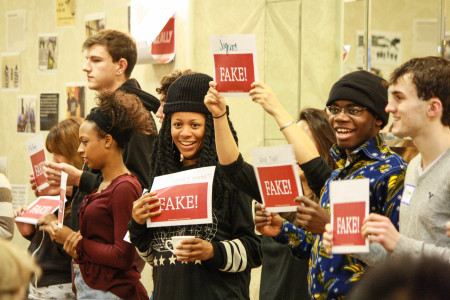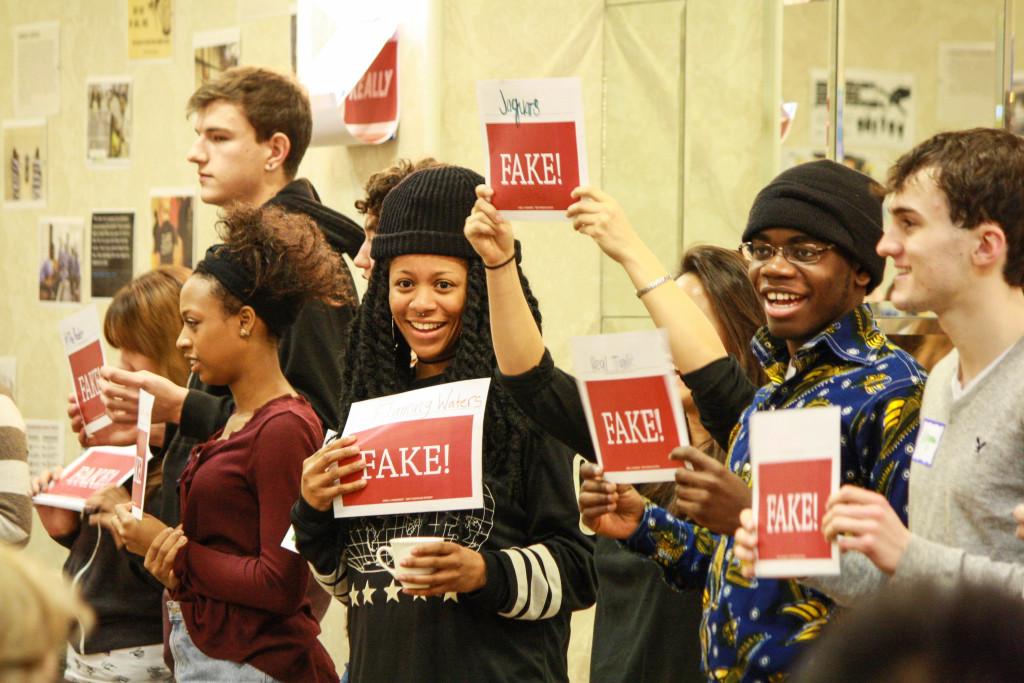
Last weekend, students and staff participated in Grinnell’s annual Posse Plus Retreat in Des Moines. Grinnell’s Posse scholars had the opportunity to invite their classmates and professors to spend the weekend off campus and participate in a series of activities and discussions meant to spark debate and engage the campus community in issues of social justice.
The retreat’s crime and punishment theme provided an opportunity for members of the campus community to discuss the injustices of our current political climate.
“[This year’s] topic was so close to my heart and so timely that people had conversations that talked about large questions of justice and also their personal experiences,” said Professor Rebecca Hamlin, Political Science.
“I think this year was very connected to our place in history,” agreed Professor Karla Erickson, Sociology. “The big takeaway was the degree to which our students’ lives are criminalized by who they are, not what they do.”
The retreat was cut short due to inclement weather, limiting the scope of discussions for participants.
“We really tried to squeeze the discussions about justice into a really tight corner, as we were all sort of floating around realizing that we were going to be leaving soon,” said professor and Posse mentor Steve Andrews, English.
“At the time when it got cut short, all of the discussion was very surface level and it hadn’t really delved deep into the emotions of everyone in the room,” said Posse Scholar Ifetayo Olutosin ’18.
Still, the weekend’s activities revealed student dissatisfaction with the justice systems in place at Grinnell and the United States.
“They were discontented with the system that’s in place here [in Grinnell]. I think in part it’s because there’s a transition right here from one kind of … system of justice, maybe we could call it procedural, to something that’s more restorative,” Andrews said.
After discussions, retreat facilitators led activities to further delve into the issues. During one activity, students were put into groups and assigned real criminal cases. In mock trial fashion, the students served as the jury and decided the verdict in each case. Afterwards, the verdicts from the real cases were read. Olutosin felt the activity helped illustrate the inequalities of the criminal justice system.
“They actually read out the real verdicts for each one and there was kind of this state of shock in the room, because it was like, is this really what our criminal justice [system] is doing today?” she said. “It also showcased the inequalities between people of wealth and people who are Caucasian as opposed to people who are not as wealthy and people of color. They could basically do the same crime but get drastically different sentences.”
Students and staff who were invited by Posse Scholars felt that the opportunity to discuss the injustices of the criminal system with their fellow classmates offered new insight into the issues.
“Every year I hear about people going to PPR and I would hear that they would have a good time [and have] lots of good conversation,” said Dan Davis ’16, one student who attended the retreat. “It was a good experience [getting] a more rounded view on the issue. I [heard] a bunch of first-hand accounts of the criminalization process, and how it effects [my peers’] daily lives.”
Conversations and activities also gave participating professors the chance to connect to their students in new ways.
“I love interacting with other students outside of our normal context where I can just be Rebecca instead of Professor Hamlin,” Hamlin said. “It’s a nice reminder for a professor that we only get to see one dimension of our students a lot of the time.”
“I like the opportunity to be the one who is learning and hear students lead the conversation,” Erickson echoed. “I think that’s what’s precious about the weekend.”


































































